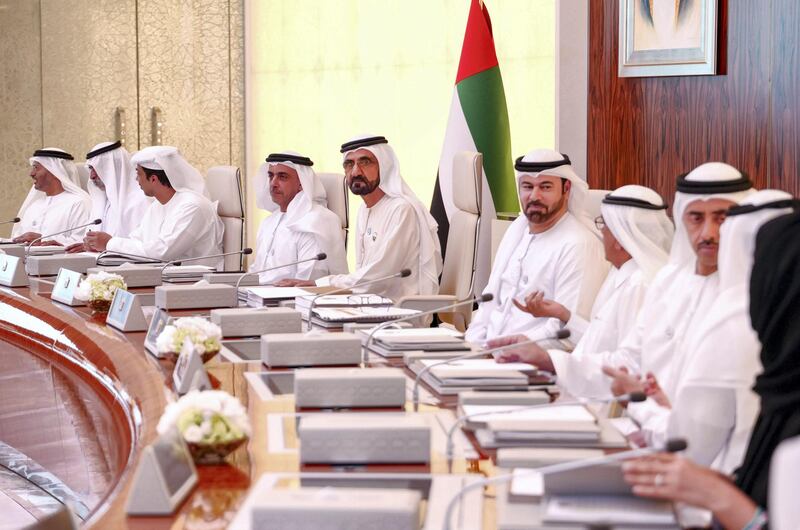Plans by the UAE government to allow foreign investors 100 per cent ownership in businesses and grant 10-year visas to some expatriates will significantly boost foreign direct investment to the country.
“We expect a significant positive effect on foreign direct investments, as 100 per cent ownership will help spur FDI outside existing free-zones,” said Jaap Meijer, managing director and head of equity research at Arqaam Capital. “We applaud these landmark decisions.”
If the government also raises the foreign ownership of listed stocks, it would encourage stronger foreign interest in the UAE capital markets, he added.
Under the plans, announced by the government on Sunday, foreign investors will be able to fully own a company in the UAE, a significant departure from the current policy that restricts foreigners to a 49 per cent stake in entities based outside designated free zones. The present framework requires foreign businesses to forge partnerships with UAE stakeholders.
“From a corporate perspective, this is potentially a game changer for the many foreign businesses which operate in and from the UAE,” said Niall O’Toole, senior corporate partner at law firm Clyde & Co. “It will give security to existing businesses and encourage more foreign investment into the UAE.”
The UAE recorded $10.3 billion of inward FDI in 2017, up 6.7 per cent from $9.6bn in 2016, according to the Federal Competitiveness and Statistics Authority. Efforts to increase FDI flows are part of broader measures aimed at boosting the contribution of the non-oil sector to the economy to 80 per cent by 2021, from the current 70 per cent following sluggish economic growth on the back of low oil prices.
"This new law will contribute to increasing transparency, quality of service, and the adoption of international best practices, while boosting the UAE’s competitiveness on the global stage and cementing its role in shaping the future of investment in the region," said Essa Kazim, governor of Dubai International Financial Centre.
The proposed residency and ownership changes will help boost local consumption in the economy and may curb remittance outflows which were estimated at $45bn in 2017, according to government data.
The changes, which will take effect at the end of the year, will not only entice “investors and capital to the UAE, but will also have a positive impact on population growth through retaining key qualified professionals across various sectors in the non-oil economy, who play a significant role in today’s competitive global economy,” said Ehsan Khoman, head of research and strategist for Mena at Japanese lender MUFG.
“Moreover, it could remove the transitory mindset of certain expatriates which could lead to less repatriation to their home markets, and more consumption within the UAE economy, which in turn will boost economic growth," he said.
______________
Read more:
Sheikh Mohammed announces sweeping changes to UAE's visa system
UAE's new visa regulations: what we know
Residency changes could open the floodgates to property sector, say experts
Abu Dhabi to further relax investment rules in 2018, official says
______________
The new measure by the Arab world's second largest economy will "reflect positively on the local economy, especially the non-oil sector, which makes up around 30 per cent of the overall economic output,” said Mohamed Bardastani, senior Middle East economist at research group Oxford Economics.
The decision to grant long-term visas to some investors and professionals will also spur inward investment. The new rules will offer residency of up to 10 years to specialists in medical, scientific, research and technical fields, compared to the current maximum of three years, as well as five-year visas to students and 10-year visas to “exceptional” students.
In a country where the majority of the population's nine million people are expatriates the changes strike a chord.
"Residency has been one of the flash points for people like me who have their roots here," said Abid Ali, the 48-year-old Pakistani founder of Dubai-based exhibition interiors company Jigsaw Technical Works, and advertising services firm Image Zone Advertising. "It still doesn't give me permanent residency, but it gives me more security. I will certainly increase the scale of my business knowing I can own it fully," he told The National.
Increased corporate investment following visa liberalisation will also help to expand and develop the UAE labour market, noted Monica Malik, chief economist of Abu Dhabi Commercial Bank.
Overall, depending on the timing and scope of implementation, the changes should prove positive for the UAE’s medium-term macro outlook by boosting demand, according to Bilal Khan, senior economist for Mena and Pakistan at Standard Chartered Bank.
“The timing is particularly significant given capacity expansion plans in a range of sectors ahead of Expo 2020 Dubai,” he said.
“As an entrepreneur operating in the UAE for over two decades, I am extremely pleased to see such progressive policies being introduced,” added Faizal Kottikollon, founder and chairman of conglomerate KEF Holdings.






